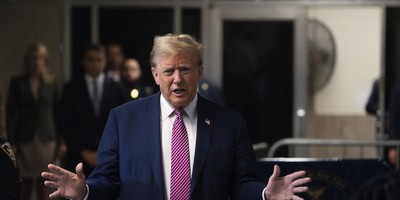You would be hard-pressed to find an American who doesn't know that the "S" in NASA stands for "Space." Since the race to the moon in the 1960s, the National Aeronautics and Space Administration has been one of the most storied agencies in the U.S. government. Now, under President Obama, its mission is changing -- and space isn't part of the story.
"When I became the NASA administrator, (Obama) charged me with three things," NASA head Charles Bolden said in a recent interview with the Middle Eastern news network Al Jazeera. "One, he wanted me to help re-inspire children to want to get into science and math; he wanted me to expand our international relationships; and third, and perhaps foremost, he wanted me to find a way to reach out to the Muslim world and engage much more with dominantly Muslim nations to help them feel good about their historic contribution to science, math and engineering."
From moon landings to promoting self-esteem: It would be difficult to imagine a more dramatic shift in focus for an agency famous for reaching the heavens. Bolden's words left supporters of space exploration astonished. "Everyone had the same impression: Is this what he is spending his time on?" says a Republican Hill aide who tracks the space program. "A lot of people are very upset about it."
NASA is not getting out of the space business, at least not entirely. But Bolden's words, together with the president's decision to scrap much of NASA's mission and include the agency in the "Cairo Initiative" -- that is, the White House outreach program outlined in Obama's June 4, 2009, Cairo speech to the Muslim world -- show that the NASA of the future will be little like the past.
Obama released his plan for NASA a few months ago, and to many, it seemed a blueprint for disaster. The moon program will be scrapped, replaced by a hazy hope to visit Mars. The space shuttle will die, too, leaving America with no way to put a man in orbit.
Recommended
Obama's proposal stunned U.S. space heroes Neil Armstrong and Eugene Cernan -- the first and last men to walk on the moon -- who, along with Apollo 13 commander Jim Lovell, made a rare public statement denouncing the plan as a "devastating" scheme that "destines our nation to become one of second- or even third-rate stature."
The president's plan to rely on the Russians to ferry American astronauts to the international space station dismayed even John Glenn, the first American to orbit the Earth who later became a Democratic senator and Obama supporter. "We're putting ourselves in line for a single-point failure ending the whole manned space program," Glenn said.
The Muslim outreach at NASA is the result of the White House's preparation for Obama's Cairo speech. Staffers found that many Muslims admire American achievements in science and technology, so Obama used the speech to announce the appointment of U.S. "science envoys" and a new fund "to support technological development in Muslim-majority countries."
Obama appointed Egyptian-American scientist Ahmed Zewail as the first science envoy to the Middle East. Just last week, Zewail argued that the United States could build better relations with the Muslim world by "harnessing the soft power of science in the service of diplomacy." The NASA initiative is part of that.
Last month, Bolden himself traveled to Cairo to mark the first anniversary of Obama's speech. In an address at the American University, Bolden cited Zewail's work and stressed NASA's role in improving relations with Islamic nations. Beginning with a hearty "Assalaamu alaykum," Bolden explained that in the past, NASA worked with countries that were capable of space exploration, but now Obama has "asked NASA to change ... by reaching out to 'nontraditional' partners and strengthening our cooperation in the Middle East, North Africa, Southeast Asia and in particular in Muslim-majority nations.
"NASA is not only a space-exploration agency," Bolden concluded, "but also an Earth-improvement agency."
At the same time, Bolden gave a bleak assessment of the space part of NASA's mission. More than 40 years after the first moon landing, he told Al Jazeera, the United States can no longer reach beyond Earth's orbit without assistance from abroad. "We're not going to go anywhere beyond low Earth orbit as a single entity," Bolden said. "The United States can't do it."
Its space initiatives junked, and its administrator rhapsodizing about helping Muslims "feel good" about themselves: That is the new NASA.

























Join the conversation as a VIP Member